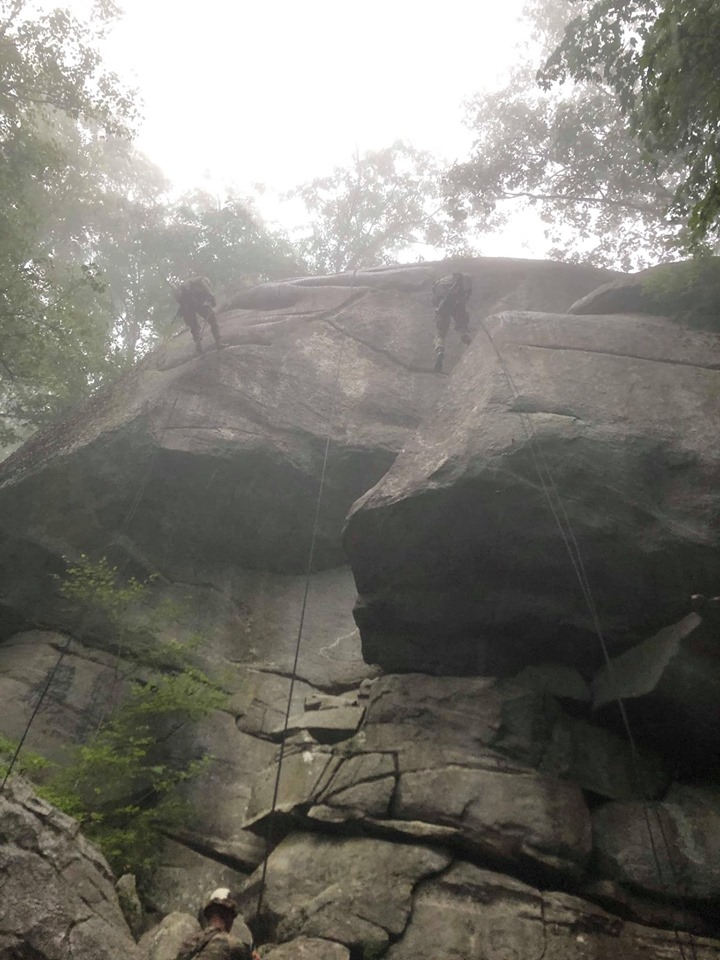For 62 days (plus a recycle or 2), Ranger students “train to exhaustion, pushing the limits of their minds and their bodies.”* From patrolling while sleep and food deprived, to mountain rappelling, to carrying machine guns through swamps, they push on to complete their mission.
Arriving in top physical condition, still fewer than 50% of candidates will complete RAP week to begin Darby phase (“squad operations … ambush and recon missions, patrol base operations, and planning”) at Fort Benning.

During the Mountain Phase, these soldiers get trained on “military mountaineering tasks, mobility training, as well as techniques for employing a platoon for continuous combat patrol operations in a mountainous environment.”
Imagine parachuting, roping, and rappelling in full military armor plus patrol gear - not the lighter-weight performance gear worn by sports climbers.
Finally, the Gulf swamps of the Florida panhandle challenge Ranger "students' ability to plan and lead small units during independent and coordinated airborne, air assault, small boat, and dismounted patrol operations in a combat environment against a determined and well-equipped hybrid threat-based opposing force.”
“After these three phases, Ranger Students are proficient in leading squad and platoon dismounted operations around the clock in all climates and terrain. Rangers are better trained, more capable, more resilient, and better prepared to serve and lead Soldiers in their next duty position.”
The lucky ones (the crazy ones? definitely the determined ones) are those still breathing, thinking, and leading.
They have earned the Ranger tab.
Why the class of 10-19? Because, yes, our office has a personal connection to it.
(By the way, their training reminds me of the impact of Baron Von Steuben on the Continental Army in 1778. Read the forthcoming A Handsome Flogging: the Battle of Monmouth (ERWS). And, it carries on the spirit of the renowned Rangers of the Civil War.)
*All quotes from "Student Information," Airborne- Ranger Training Brigade

